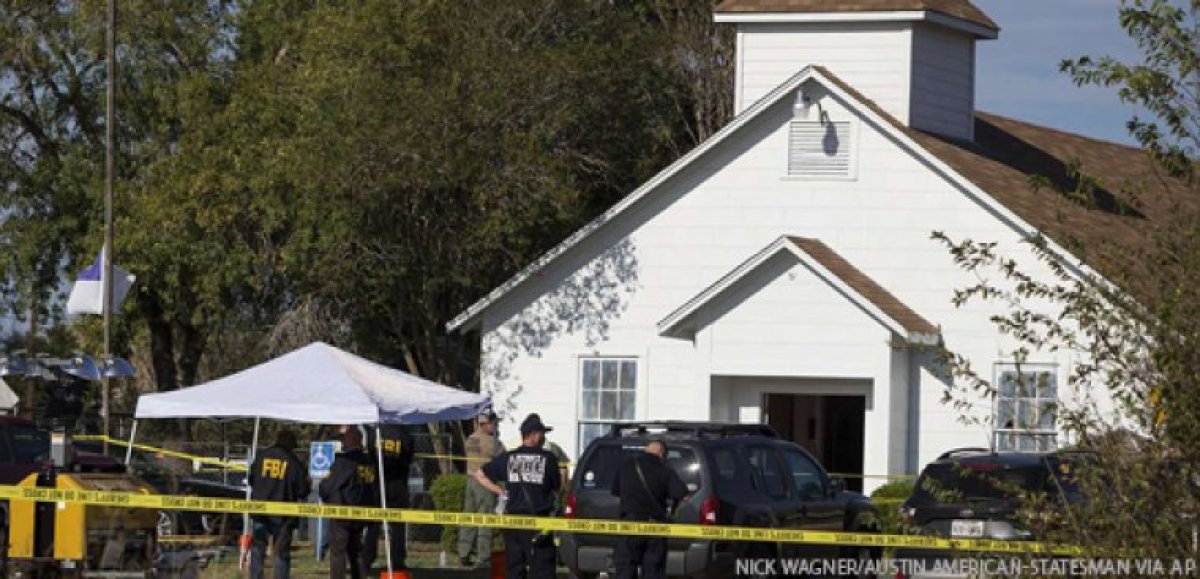Like many churches around the nation, Lancaster Baptist had a time of prayer last evening for First Baptist Church in Sutherland Springs, Texas. Less than six hours earlier, twenty-six people’s lives were taken during the worship of that church.
A mass shooting is always tragic and, regardless of how or where it takes place, we grieve the loss of life. But when it happens in a church, to brothers and sisters in Christ, we grieve for and with our Christian family, perhaps in a deeper way.
What should Christians do when something like this happens? How should they respond?
1. Pray for Those Left Behind
Our first response in every tragedy should be prayer. As Christ taught us, “Men ought always to pray…” (Luke 18:1). God invites us to cast our burdens on Him, because He cares for us (1 Peter 5:7).
Pray for the victims’ families and, in this case, for their church family. My heart especially goes out to Pastor Pomeroy whose fourteen-year-old daughter was among those killed in the shooting. I don’t know this pastor personally, but I cannot comprehend the burden he is carrying for his own family and then also as he is ministering to his church family through this great tragedy.
Pray also for those who are in authority—law enforcement officials and civil leaders as they respond. In particular, I have appreciated the tenderness and godly faith of Governor Abbott in leading people to pray for the families and victims of this particular shooting. But pray for all of those involved.
And pray for those who give care—spiritual and physical. Approximately twenty people right now are in hospitals being treated for wounds. Pray for the doctors and nurses who are caring for them, in the wake of seeing their own community and state so devastated. Pray for extended family and spiritual leaders (in addition to Pastor Pomeroy) giving love and seeking to direct hearts to the comfort of God.
2. Reject Fear
The senselessness of violence leaves us all reeling with unanswered questions. And there’s something about this particular shooting taking place in a church that adds an even greater sense of vulnerability.
As I was praying for this church yesterday and thinking through the implications of this event, I thought of the first-century Christians who routinely were harassed, imprisoned, tortured, and martyred for their faith. What must it have been for them to watch one another go through these types of persecution?
They had to choose to look to Christ for courage. As Paul wrote to Timothy, “God hath not given us the spirit of fear; but of power, and of love, and of a sound mind” (2 Timothy 1:7).
Do not allow the powers of darkness to score a double victory by making you a victim of fear.
Even as first-century Christians continued in their regular worship through extreme persecution, so we should remain faithful in the assembling of ourselves with our church families. “Not forsaking the assembling of ourselves together, as the manner of some is; but exhorting one another: and so much the more, as ye see the day approaching” (Hebrews 10:25).
3. Preach the Word
If you are a pastor, be careful of politicizing. Remember that God has called you to the flock you serve with instructions to, “Preach the word; be instant in season, out of season; reprove, rebuke, exhort with all longsuffering and doctrine” (2 Timothy 4:2).
We all have our political opinions. But don’t do with a tragedy what we hate for politicians to do—turn it into a platform to further a given agenda. When people come to church after an event like this, they need to hear the Word of God. Only God’s Word can bring comfort, courage, hope, and security.
4. Physically Protect Your Flock
Once again, if you’re a pastor, this would be a good time to review your security plan. We do have a plan in place for handling various levels of violent situations, and from time to time (including in last evening’s service) I mention that to our church family.
Every church facility is different in terms of the needs for security. But I would strongly encourage every pastor to, with the help of expert advice, put a solid plan in place that will provide protection for every service, and to let your church family know that is the case.
5. Remember Your Blessings
Love your family. Love your church family.
The truth is, none of us know “what shall be on the morrow. For what is your life? It is even a vapour, that appeareth for a little time, and then vanisheth away” (James 4:14).
It’s sad that sometimes it takes a tragedy to wake us up to the fact that none of us are guaranteed tomorrow. But when we’re faced with losing the ones we love, we realize how much of our time we have invested in things that don’t matter.
Thank God for the people He has placed in your life to love, lead, and care for. Give your children a hug. Tell them you love them. Pray for your church family. Tell them you’re thankful to be with them.
Reflect on the blessings God has given you through the people He’s put in your life. And let them know you love them.



